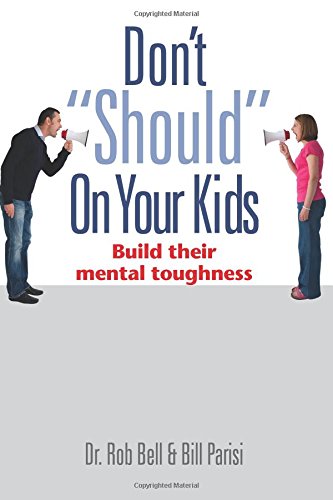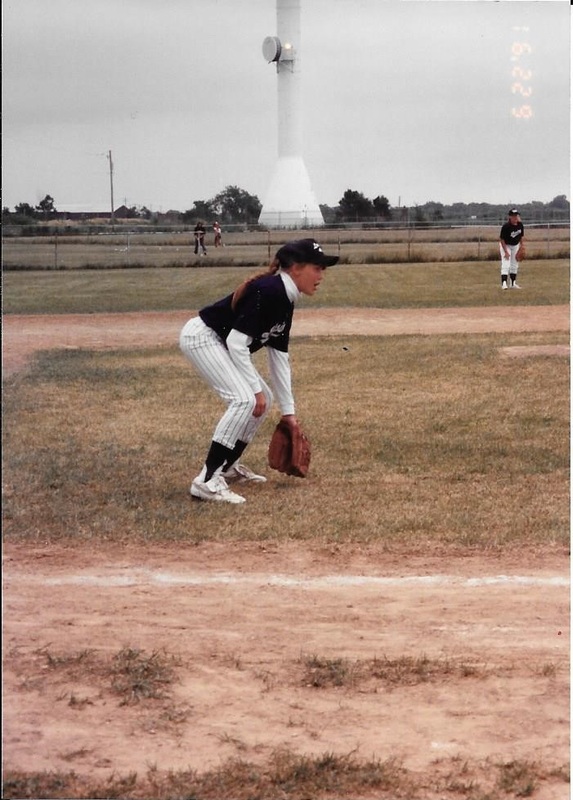The idea is that the professionalization of youth sports has created this crazy world of stressed out, perfectionist kids, overly-involved parents, and a high rate of burnout before the child has even reached their full potential. "Trophies over toughness," as the book states, has become the norm. And everyone is miserable because of it.
This subject is, obviously, of great interest to me. Our little Bear, officially a two-sport athlete, needs some confidence building. He figured out quickly that when playing soccer, as long as he keeps up with the herd, it looks like he's trying. He freezes, however, if the ball is kicked anywhere near him. Then he runs away. But soccer has been great because I get to enjoy being a parent on the sidelines, not a coach. That's an interesting ball of wax, needless to say, that requires a different set of skills.
Let's not forget - spring baseball is just weeks away. I'll be coaching again, in some capacity, and I want both of us to do the best we can. I want him to whine as little as possible. (...is that possible?) More than winning games and on-base percentages, how do I help him grow as an athlete? When do I push, and when do I pull back? What do I do if he shows poor effort (gaaaah - my #1 pet peeve). I want him to get the full benefit of being a happy, well-adjusted good player - how the heck do you do that?
On a personal note, my softball and volleyball careers were short-lived - over before my 14th birthday. Why? Did I burn out? Did I just suck? I honestly don't know. But instead of doing a postmortem of the past, I'm choosing to focus on my new sport - running - and the psychological fortitude it requires. Anyone talking about mental toughness in any capacity has my full attention.
"You shouldn't make so many mistakes."
"You should have given more effort."
"You shouldn't be nervous."
All things, I'm sad to admit, that have come out of my mouth. It's so hard not to! We want the best for them, right? So why is this so freaking hard?
Dr. Rob and Bill break it down easily. The book is 135 pages, a quick read with easy-to-digest chapters. It takes you through how to handle all the parts that make up a season, including that all-important car ride home (here's a spoiler: don't talk about the game). The book offers great insight into how some children peak too soon, why others go on to play professional sports, and why the likelihood of your kid getting a Division I scholarship is very remote (sorry to break it to you). It also encourages parents to allow their kids to fail (shocking, I know!) AND how to tolerate loss while growing their passion. Best, not only do they tell you what not to do, they have simple, actionable items of what to do instead. Woohoo! You know I love actionable items.
One of my favorite chapters in the book is called, "Can't Want It More Than Them." They use the example of Herschel Walker, retired NFL player and winner of the 1982 Heisman Trophy. Back then, he was just a kid who was made fun of at school and avoided recess for fear of getting beat up. Frustrated he was losing his snack money and still getting beat up, he made the decision one day: never again. That summer, he did 5,000 push-ups a day, 5,000 sit-ups a day, and dragged an old tire around his yard by a rope tied around his waist. He turned himself into force to be reckoned with, a future Hall of Famer, and never got picked on again.
The point: imagine if his parents had told him he had to do all of those things. Uh...suddenly, the equation changes dramatically.
It makes me think what would have happened if someone told me I had to wake up at 3:30 to run 20 miles. If someone told me I had to run X number of marathons a year. I would balk and rebel; we are all human, after all. That sounds horrible. But yet I did it (and continue to do it) because I want to. Without passion, it's just work. And the why has to make you cry. (love that line)
It makes me think of Scotty and baseball. I noticed about halfway through Fall Ball he couldn't wait to get to practice; he'd lace up and be in the car before I could fill the water bottles. He was totally okay with practices three times a week, and games twice. Five days of baseball; it was a lot. Was his behavior because of a love for the game? No, it was because after game or practice, the entire team ran to the playground and played this weird zombie game that looked like freeze tag. They never forgot where they left off after each game and it appeared this game had no end. At first I was annoyed he wasn't taking baseball seriously, then I realized - I don't care what his motivations are. If he is going to correlate loving baseball because he loves his new buddies, than that's fine by me. He's six, after all. He going without me nagging, pleading and threatening. If the lure of an undead game of tag gets you out the door, who am I to judge? After all, isn't this supposed to be fun?
I cannot recommend "Don't 'Should' On Your Kids" enough. Every chapter, I was reminded of another incident in our Bear's short but storied baseball and soccer career. I took notes, highlighted passages, and pretty much nerded out. I told Brian, "You need to read this before the season starts" to which he willingly agreed. Everyone should; because ultimately, it's not about division championships or college scholarships, it's about preparing our kids for inevitable loss and failure while developing resilience and courage. Will Scotty be a college athlete? I have no idea. But more important than performance, I want him to reap the benefits that team sports offer, to love being physically active, and to have the confidence and flexibility to handle challenging situations.
Big thanks to both men for sending me an early release of the book. You can find your copy on Amazon. The paperback retails for about $17.97 though in my opinion, the advice is priceless.
Dr. Rob is a sports psychologist with over 15 years experience and has authored three other books on building mental toughness. For more information, be sure to check out www.drrobbell.com and follow him on Twitter (@drrobbell). He even offers a weekly newsletter called "Friday Mental Toughness." Perfect before the long run and Saturday baseball game!
Bill Parisi, one of the founding fathers of youth performance training, was a two-time NCAA Division I Track and Field All-American that qualified for the Olympic Trials in the Javelin in 1988. You can follow him on Twitter @parisispeed.



 RSS Feed
RSS Feed